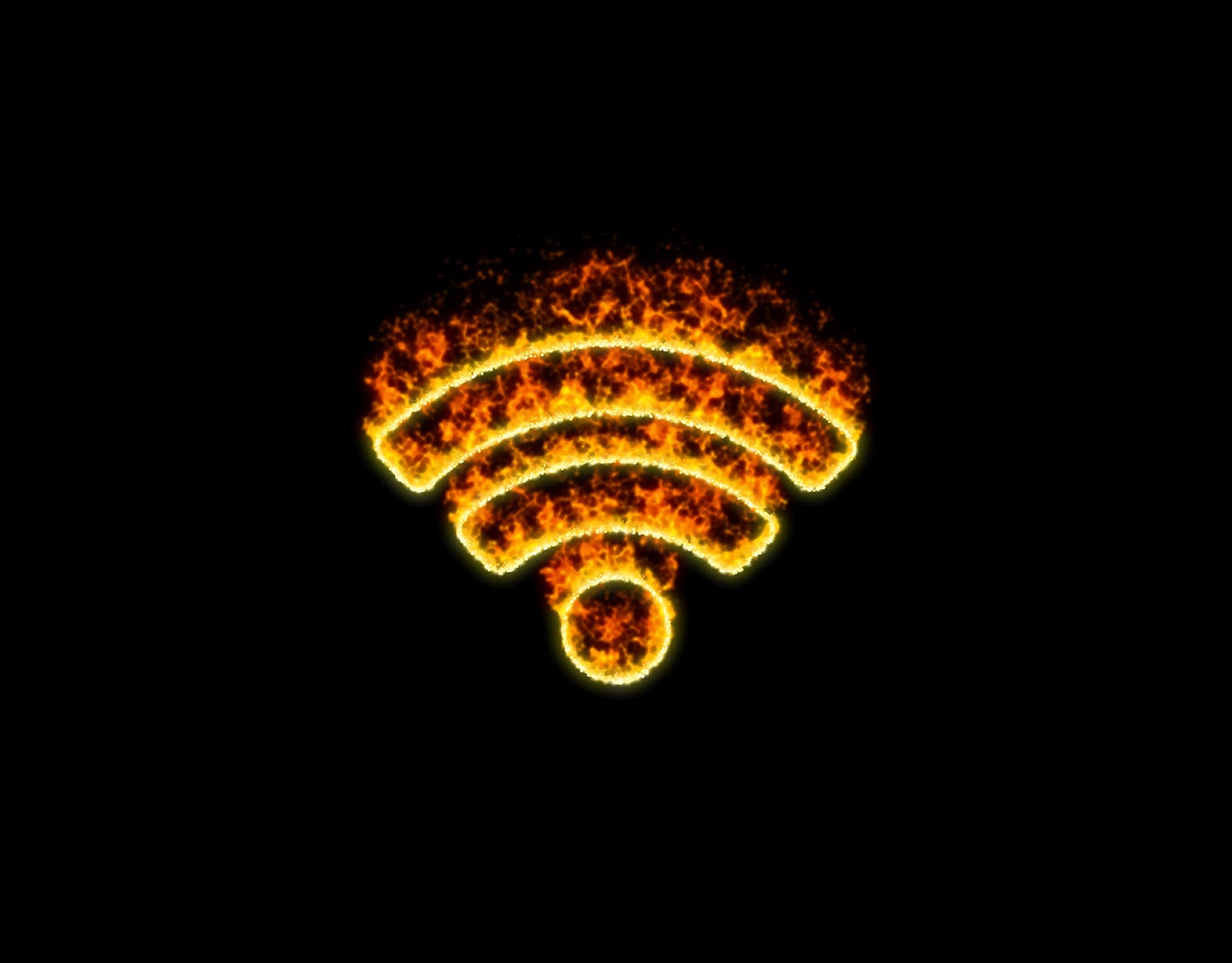The Internet Is a Playground for Tyrants
American complacency has let the internet become a tool of oppression for autocracies around the world—but it doesn’t have to stay that way.
Last week, Mahsa Amini, a 22-year-old Iranian woman, was arrested for not wearing her hijab properly while visiting Tehran. At the police station, she fainted from a brain injury caused by police battery during her arrest. By the time she arrived at the hospital, she was in vegetative state, and her heart stopped beating a few days later. This incident sparked yet another round of mass protests in Iran. The provincial capital city of Sanandaj, Mahsa’s Kurdish-majority hometown, was the center of the protests this time, and the internet there was disconnected soon after. As the protest spread to the rest of the country, users began losing connection en masse in other cities too, including Tehran.
A quarter century ago, President Bill Clinton promised that the internet would bring freedom to the world. His prediction of the internet’s ineluctable, liberal triumph—“Now there's no question China has been trying to crack down on the Internet. Good luck!”—led to American complacency that ceded the internet to tyrants. The Chinese government wasn’t lucky; it was determined: It heavily censors what its people can see online and uses the internet to track and arrest dissidents, collect intelligence, control the society, and prevent or suppress protests. Others did the same.
Disconnecting the internet has been a relatively recent tool of oppression in Iran. In 2019, the Islamic Republic witnessed a popular uprising, the most threatening to the regime’s survival (so far). After violence alone failed to end it, the regime disconnected the internet nationwide for a week. That did the trick. People had no means of communication, mobilization, and organizing. Since then, the regime has made a habit of disconnecting the internet whenever and wherever there are protests, and it has worked every time.
The regime in Iran has mulled implementing a “national internet”—i.e., an intranet, disconnected from the internet and only accessible inside Iran. Other dictatorships are toying with similar ideas. There are even concerns of an eventual internet bipolarity: two internets, disconnected from each other, one for the free world, and one (or several) for the unfree one. Russia has considered RuNet, “a bid to show that the country's online infrastructure could survive even if disconnected from the rest of the world.” China, while coy about establishing an intranet, uses its Great Firewall to control the internet, and its “Internet Plus” project was designed to integrate all new digital technologies—the internet, quantum computing, cloud data, etc.—to serve the state and its mercantile policy.
To many in the United States, especially technocrats under the influence of Silicon Valley, the idea of decoupling the free world’s internet from the autocratic intranets is unfathomable—but they should fathom it, because it may happen soon, and they have no control over it. But it can be preempted.
To appreciate how important the free flow of information is to dissidents, one need only consider the lengths dictators go to censor the internet. Iran has an entire cabinet ministry increasingly devoted to digital content—and another concerned with digital repression. Other unfree countries behave similarly. Last year, Cuban protesters were forced to resort to all kinds of tricks to bypass internet censorship. The investment both tyrants and protesters make in internet technology indicates how important an open internet is.
The decoupling between free and unfree networks might happen in the medium-term future. Or it might not. If it doesn’t, it will likely be because dictators from Havana to Moscow to Tehran to Beijing figure it’s not worth the expense, given how easily they can control the internet now. Far from being the libertarian super-highway it once appeared, the internet has been serving tyrants.
As much as we might anthropomorphize it in everyday speech, the internet is an inanimate thing. Free countries rely on open access to information, which makes regulating the internet difficult and uncomfortable. Dictatorships don’t have this problem, and they censor and surveil with abandon. The best counter-practice for free countries is to ensure that the enemies of freedom fail in restricting access. This would redound to the benefit of the United States, as well as those it would help get online. American support of VPNs to help Russians circumvent the Kremlin’s censorship is a good start, but a small one—and it wouldn’t help if Russia or another tyranny decided to cut access to the internet altogether. We have yet to see the potential of Starlink to maximize access to the internet, but its use in Ukraine is a good case to study (which was also financed by the U.S. government). And Elon Musk recently requested a waiver from sanctions to give access to the Iranians, which the Treasury Department quickly approved. A day later, green spots in Iran began popping on the Starlink tracker Satellite Map.space, proving that people were already using Starlink in Iran. Other technologies such as internet balloons show promise. Investing in such technologies is now a matter of foreign policy necessity for the United States—and it is worth remembering that the internet itself is a DARPA product.
The U.S. government needs to begin serious investment in technologies that would assure access to the internet before the great internet schism occurs. More than that, once a solution is found, there needs to be investment to ensure the reach of that technology to peoples living under tyranny. Dictatorships keep telling us what they fear. It is only natural to give them exactly that before it’s too late.




